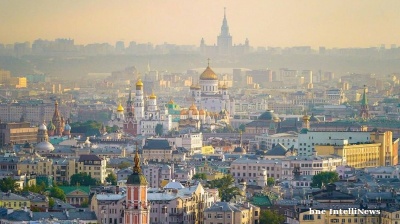Russia should criminalise occult practices and imprison tarot readers and numerologists as extremists, its MPs have said.
In an interview with Spas, a TV channel operated by the Russian Orthodox Church, MP Alexander Spiridonov suggested that individuals who "cast curses" could be held criminally liable, equating it to an attempt to harm another person’s health. Alexander Spiridonov is a deputy representing United Russia, the country’s ruling party.
“Casting a curse, bringing back a loved one, inflicting health problems on others. This is no longer just fortune-telling – it's an attempt to influence another person,” Spiridonov told the channel. “It should be criminally punishable if someone tries to harm another person's health and life.”
According to Spiridonov, he is currently collaborating with a priest to draft a bill that would not only criminalise these practices, but also prohibit the advertising of services related to magic, such as fortune-telling, astrology and psychic readings.
Similar initiatives have been promoted by other MPs, including Andrey Svintsov, who represents the far-right Liberal Democratic Party of Russia. Svintsov has proposed requiring tarot readers and numerologists to obtain medical licences, suggesting that those without certification would be regarded as "charlatans" and subject to criminal prosecution.
“It will all be recognised as extremism, with heavy fines,” he said, noting that some could face imprisonment. He anticipates that new regulations will be enacted within a year.
Support for this initiative goes beyond political figures. During the same TV program, Dmitry Krasnov, a representative of the public movement Strong Russia, likened occult practices to extremism, arguing that they endanger Russia's unity and cultural identity. Krasnov stated that these practices can be divided into three categories: fraud, harmful spiritual activities and foreign influence with the intent to destabilise the nation.
According to Argumenty i Fakty, a newspaper owned by the Government of Moscow, the occult market in Russia is rapidly growing, by up to 20% each year, and is now nearing an annual turnover of RUB2 trillion ($21bn). The demand is largely driven by individuals seeking relief from anxiety and uncertainty, often as a result of the Russian invasion of Ukraine, encouraging people to turn to occult practices for guidance. Common clients are women aged 25 to 55, and the industry now rivals more traditional psychological services, the newspaper reported.
News

New clashes erupt on Pakistan–Afghanistan border
Fresh violence has broken out along the Pakistan–Afghanistan frontier, as forces aligned with the Taliban engaged Pakistani border guards in what sources say was a heavy exchange of fire.

Do 60,000 maps seized by authorities in China identify Taiwan as independent?
Chinese customs authorities in Shandong province have reportedly confiscated 60,000 maps destined for export after alleging they contained “serious mistakes” related to the depiction of Taiwan and the South China Sea.

Trump's $20bn boost for Argentina comes with electoral strings
Argentine President Javier Milei met with US President Donald Trump at the White House on October 14 to strengthen bilateral ties, securing a crucial - but conditional - endorsement ahead of Argentina's midterm legislative elections.

Kazakhstan’s EDB signs Abu Dhabi Fund MoU to development to strengthen strategic cooperation
The Eurasian Development Bank and the Abu Dhabi Fund for Development have signed a MoU aimed at enhancing strategic, technical and operational cooperation to support sustainable socioeconomic development in countries of mutual interest.

_Cropped_(1).jpg)


